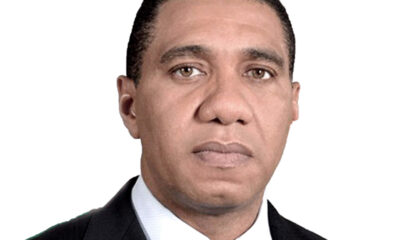Milestone
CARICOM Celebrates 52 Years of Regional Integration and Cooperation

The Caribbean Community (CARICOM) is commemorating its 52nd anniversary, marking five decades of promoting economic integration, political cooperation, and regional solidarity among its member states.
In a statement released on CARICOM Day 2025, Secretary-General Dr. Carla Barnett reflected on the region’s journey, highlighting its achievements and challenges.
Despite facing numerous tests, including the aftermath of Hurricane Beryl and other climate change-related impacts, the region has remained committed to its fundamental principles and values, including democracy, rule of law, and human rights.
This commitment has enabled CARICOM to respond effectively to challenges, such as the COVID-19 pandemic, and to implement joint initiatives in areas like health, food security, and climate change.
Dr. Barnett expressed gratitude to CARICOM citizens, including those in the diaspora, for their ongoing contributions to the region’s development and integration.
She particularly recognized the efforts of young people, who are demonstrating a keen commitment to regionalism and are vital to building a “Community for all” – one that is inclusive, protects the vulnerable, and values every citizen.
As CARICOM celebrates its anniversary, Heads of Government are preparing to meet in Montego Bay, Jamaica, for the 49th Regular Meeting of the Conference.
Key discussions will focus on citizen security, deepened economic integration through the Caribbean Single Market and Economy (CSME), and external trade negotiations.
The meeting will provide an opportunity for leaders to review progress, chart a way forward, and consolidate gains made so far.
The Caribbean Community’s record of past achievements is a clear indication of its potential for sustained growth, security, and resilience.
Milestone
Chief Chukwuma Johnbosco and the Making of a Purpose-Driven Leader
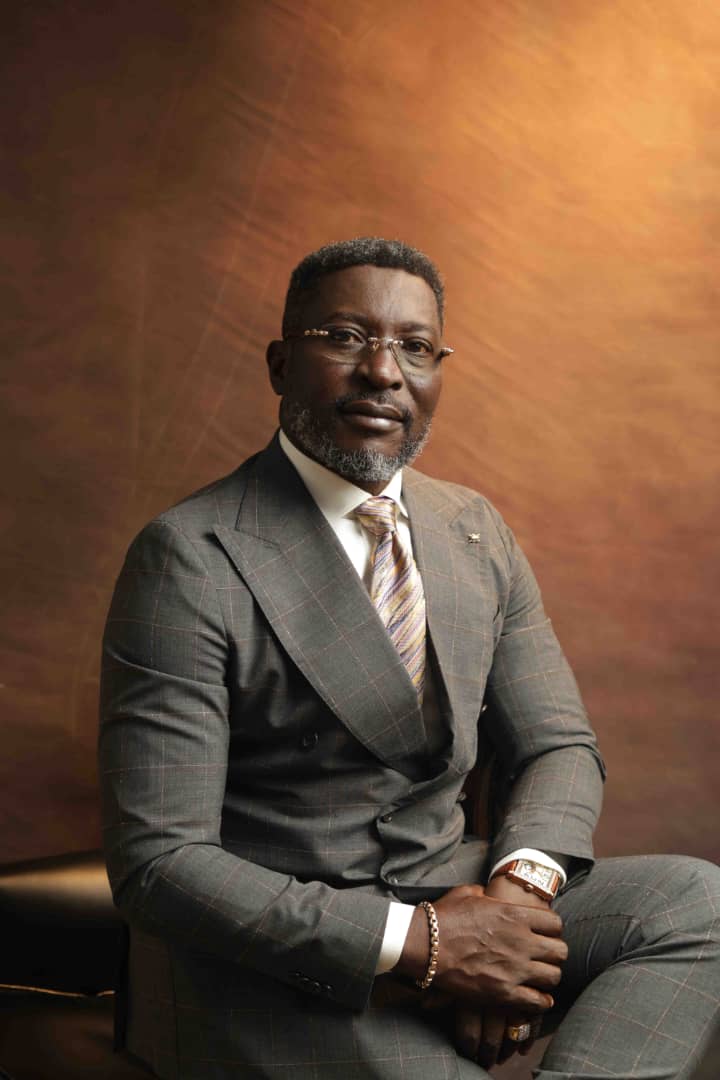
Chief Chukwuma Johnbosco and the Making of a Purpose-Driven Leader
By Boniface Ihiasota, USA
High Chief Johnbosco Chukwuma Ozigbu, Ph.D, the Ogwuaga of Ogwuaga, has emerged over the years as one of those contemporary Nigerian figures whose influence cuts across business, community service and intellectual engagement. His public profile has been shaped not by sudden prominence but by a steady accumulation of enterprise, learning and social intervention, drawing attention to a leadership model that blends economic ambition with social responsibility.
Born into the Abba community in Nwangele Local Government Area of Imo State, Chief Johnbosco’s roots remain central to his public life. He has consistently maintained strong ties with his home community, a connection that has informed much of his humanitarian and development-oriented activities.
In recognition of his contributions to socio-economic growth and community development, he was conferred with the traditional title of Ikenga Igboland by the South East Council of Traditional Rulers in 2025, an honour traditionally reserved for individuals regarded as symbols of industry, resilience and achievement within Igbo society. He also holds the title of Ogwuaga of Ogwuaga, further affirming his standing within traditional institutions.
Chief Johnbosco’s business journey spans multiple sectors of the Nigerian economy, reflecting a diversified entrepreneurial outlook. He is widely reported to have interests in construction, real estate, oil and gas services, maritime operations, agriculture and infrastructure development. Within these sectors, he has been associated with projects that contribute to employment generation and local economic activity, particularly in parts of the South-East.
As Chief Executive Officer of Realtypros Global Investment Limited, he has been linked to real estate development initiatives aimed at addressing housing needs while promoting structured investment practices. His business engagements have often been described by associates as long-term and value-driven, shaped by an emphasis on sustainability rather than speculative gain.
Beyond commercial enterprise, Chief Johnbosco has built a reputation for humanitarian engagement, particularly in areas of youth empowerment, education and community infrastructure. Reports across national and international newspapers have projected his involvement in scholarship support for students, sponsorship of educational programmes and assistance to young people seeking vocational and entrepreneurial skills.
His interventions in community development have included support for road construction, housing initiatives and faith-based projects, including the building and donation of church facilities in his home region. While many of these efforts have been carried out without extensive publicity, they have attracted recognition from traditional rulers, community leaders and civil society figures who regard his approach as focused on long-term impact rather than temporary relief.
A defining aspect of Chief Johnbosco’s profile is his sustained commitment to academic advancement. In 2021, he was awarded a Doctorate degree in International Economics and Finance by Rivers State University, a feat that reaffirmed his engagement with global economic issues and policy-oriented thinking. His academic pursuits also include a Postgraduate Diploma in Strategy and Innovation from the University of Oxford in the United Kingdom, one of the world’s leading centres of higher learning.
In addition, he has reportedly undertaken executive education programmes at institutions such as the University of Cambridge and Harvard Business School, experiences that have broadened his exposure to global best practices in leadership, management and strategic thinking.
This strong academic foundation has complemented his business activities, equipping him with analytical tools that inform decision-making across sectors. His interest in research and knowledge dissemination is further reflected in his reported appointment as a member of the editorial team of the Global Journal of Management and Business Research in the United States, a role that places him within international academic and professional networks focused on advancing management scholarship.
Those who have worked closely with Chief Johnbosco often describe him as a mentor who places emphasis on discipline, integrity and patience. He has been involved in guiding younger entrepreneurs and professionals, encouraging them to combine formal education with practical experience and ethical conduct.
This mentorship role has reinforced his influence beyond his immediate business ventures, extending his impact into the development of future business leaders.
Despite the visibility that comes with his titles and accomplishments, Chief Johnbosco has largely maintained a restrained public presence, preferring to let results define his legacy. His style contrasts with more flamboyant expressions of success, aligning instead with a belief that credibility is built through consistency and service. This disposition has helped solidify his reputation as a dependable figure within both traditional and professional circles.
Extra
Ayomide Kashim Ibrahim: Redefining Global Finance Through Inclusion and Innovation

Ayomide Kashim Ibrahim: Redefining Global Finance Through Inclusion and Innovation
By Boniface Ihiasota
In the fast-evolving world of finance, where precision meets pressure and profitability often overshadows purpose, Ayomide Kashim Ibrahim, FCA, CFE, stands as a rare visionary redefining what financial leadership means in the 21st century.
A Finance & Tax Strategist, CEO, Board Member, Scholar, and Community Builder, Ibrahim has spent over two decades crafting a legacy built on innovation, integrity, and impact. From Nigeria to Washington D.C., his story is one of professional mastery fused with deep commitment to social empowerment, using finance not just as a tool for business growth, but as a vehicle for nation-building and generational transformation.
Currently serving as the Chief Executive Officer of FinServe Pro, a U.S.-based financial advisory firm headquartered in Lanham, Maryland, Ibrahim leads a mission-driven organization at the forefront of inclusive finance.
Under his leadership, FinServe Pro has grown into a multi-service financial hub offering tax, accounting, audit, and insurance advisory, specifically designed to meet the needs of immigrant entrepreneurs, small businesses, and families navigating the complexities of the U.S. financial system.
In 2025, FinServe Pro received the NIBAD “Financial Services Company for Immigrants” Award, recognizing its pioneering approach to financial inclusion and culturally responsive client engagement.
The firm’s success was also spotlighted in The African Journal, which profiled Ibrahim as one of the leading voices advancing financial access for the African diaspora in North America.
“Finance should not intimidate; it should inspire,” Ibrahim says while speaking to Diaspora Watch Newspapers.
“My goal is to make financial systems accessible, equitable, and empowering especially for communities that have historically been left out.”
As CEO, Ibrahim has led strategic expansion and capital acquisition, securing partnerships across sectors while building a high-performance team anchored on integrity, innovation, and measurable impact.
Professional Footprint and Global Influence
Ibrahim’s professional experience spans both the corporate and public sectors, reflecting a diverse understanding of global finance systems.
He currently holds executive roles in multiple organizations, including:
– Legacy Global Business Network – Vice President, Finance (Dec 2023–Present)
Oversees financial strategy, budgetary management, and ERP integration across multiple departments. Ensures GAAP compliance and fiscal transparency for board-level and regulatory reporting.
– Cloud Solutions Technology – Financial Controller (Oct 2023–Present)
Designs robust internal control frameworks and automated financial reporting systems to ensure sustainable growth.
– Smart Electric Power Alliance – Manager, Accounting & Finance (Mar 2022–Present)
Leads audit, grant management, and accounting operations. Develops advanced financial dashboards and forecasting tools that guide executive decision-making.
– Institute of Chartered Accountants of Nigeria (USA District) – Board Member (Jun 2022–Jun 2025)
Promotes professional excellence among accountants in the diaspora. Spearheads cross-border programs connecting Nigerian professionals to global networks, investment opportunities, and capacity-building platforms.
Prior to his U.S. leadership journey, Ibrahim served in several strategic finance roles, including Principal Accountant at Lagos State University (2010–2017), where he directed IPSAS-aligned accounting across multiple campuses and introduced modern fiscal control frameworks.
Earlier in his career, he interned at KPMG Nigeria (2009), supporting statutory audits and control documentation for corporate clients, a formative experience that shaped his career-long commitment to financial governance and accountability.
A product of Olabisi Onabanjo University, where he earned his B.Sc. in Accounting, Ibrahim has continuously strengthened his technical foundation through global certifications and advanced professional designations.
He is a Fellow, Institute of Chartered Accountants of Nigeria (FCA), Certified Fraud Examiner (CFE), Certified Information Systems Auditor (CISA), Certified Information Security Manager (CISM) QuickBooks Online & Payroll Certified Professional
This rare combination of credentials positions him as a holistic strategist, one who understands the interplay between finance, risk management, and technology in shaping modern organizations.
Beyond boardrooms and balance sheets, Ibrahim is an accomplished scholar and prolific thought leader whose works bridge the gap between financial theory and policy-driven transformation. His publications span key areas such as fiscal governance, crisis preparedness, and sustainable development.
His recent works include: Leveraging Data Science for Fiscal Governance (2024), De-Risking Development Finance (2023), Conceptual Framework for Crisis Preparedness (2023), Connecting Facility Management to Smart City Development (2021), Conceptual Framework for Building Information Modelling Adoption in Sustainable Project Delivery Systems (2021), Advanced Financial Modeling Techniques for SMEs (2020), Advanced Financial Modeling Techniques for Small and Medium-Scale Enterprises (2020) and Conceptual Model for Assessing Political Risks in Cross-Border Investments (2019)
These publications, widely referenced across academic and policy platforms, reinforce his commitment to integrating data-driven insights into real-world financial strategy.
Ibrahim’s professional excellence and community impact have earned him numerous accolades, including the A.D. King Young Professionals’ Iconic Award for Excellence in Financial Leadership.
He is also a recognized Key Community Leader and Advocate, having mobilized several financial literacy and empowerment programs across African and immigrant communities in the U.S. and abroad.
Through his leadership, FinServe Pro and the FinServe Pro Foundation have become vehicles for impact, reaching youth, families, and professionals with practical tools for financial management, entrepreneurship, and wealth creation.
The Foundation’s ongoing initiatives at Historically Black Colleges and Universities (HBCUs) and community centers continue to inspire financial confidence among next-generation leaders.
Beyond his corporate portfolio, Ayomide Kashim Ibrahim is also known as a SidePreneur Coach — a mentor dedicated to helping professionals turn skills into sustainable business ventures.
His mentorship programs emphasize clarity, structure, and long-term financial independence, empowering individuals to transition from employment to enterprise with confidence.
“The goal isn’t just to earn more, but to build systems that sustain wealth and create freedom,” Ibrahim explains. “Financial independence begins with knowledge and discipline.”
His mentorship has inspired hundreds of professionals across the African diaspora to embrace entrepreneurship as a pathway to empowerment and legacy building.
With over 20 years of professional experience, Ayomide Kashim Ibrahim represents a new generation of African executives bridging continents, industries, and ideas. His approach to finance is transformational rather than transactional, blending innovation with inclusion, and strategy with service.
He envisions a world where finance drives equity and access where the African diaspora not only participates in the global economy but shapes it.
“Africa’s greatest export is its people — their resilience, intellect, and creativity,” Ibrahim says.
“My mission is to connect that strength to global systems that promote innovation, inclusion, and generational wealth.”
As FinServe Pro expands its reach and its foundation deepens its impact, Ibrahim’s philosophy remains constant: finance must serve humanity.
Through every boardroom decision, every publication, and every mentorship session, Ayomide Kashim Ibrahim is doing more than managing numbers — he’s building bridges, shaping futures, and redefining what financial leadership means in a globalized, inclusive world.
Milestone
Excel Group CEO Celebrates Chief Dr. Sir Kelechi Eke on Birthday
Excel Group CEO Celebrates Chief Dr. Sir Kelechi Eke on Birthday
The Chief Executive Officer of Excel Global Media Group, Mr. Boniface Ihiasota, has felicitated with Ambassador Chief Dr. Sir Kelechi Eke on the occasion of his birthday, describing him as a distinguished son of Imo State and a pride to Nigeria’s diaspora community.
In a goodwill message released on Monday, Ihiasota, who is also the publisher of Excel Magazine and Diaspora Watch Newspaper, extolled the virtues of Chief Eke, noting his contributions to community development, service to humanity, and dedication to family values.
Ambassador Eke, a native of Umuaba Village in Ife, Ezinihitte Mbaise Local Government Area of Imo State, is a retired officer of the United States Army and former official of the U.S. Immigration Service. He currently resides in Dallas, Texas, with his wife and five children.
While acknowledging his professional and personal accomplishments, Ihiasota said Chief Eke’s life exemplifies resilience, patriotism, and leadership worthy of emulation.
“On behalf of Excel Global Media Group, we celebrate an illustrious Nigerian whose footprints in service, both at home and abroad, continue to inspire. Chief Eke’s commitment to his roots and his contributions to the diaspora community remain remarkable,” Ihiasota stated.
He prayed for God’s continued guidance, good health, and more fruitful years for the celebrant.
-

 News5 days ago
News5 days agoTrump Hails ‘Turnaround for the Ages’ in Record 110-Minute Address
-

 News5 days ago
News5 days agoMexico in Turmoil After CJNG Kingpin Killed in Military Operation
-
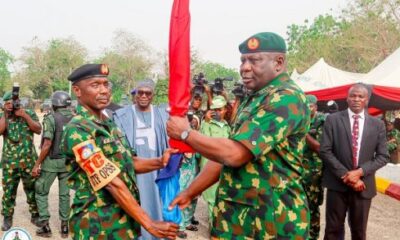
 Analysis5 days ago
Analysis5 days agoSavannah Shield and the Security Recalibration of Kwara State
-

 Analysis5 days ago
Analysis5 days agoWho Is After Peter Obi? By Boniface Ihiasota
-
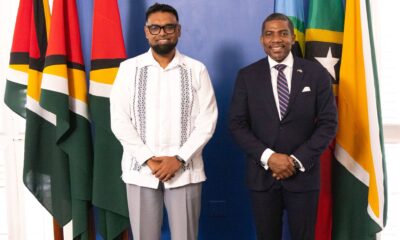
 News5 days ago
News5 days agoCARICOM Chair Engages Guyana in Fresh Push for Regional Integration
-
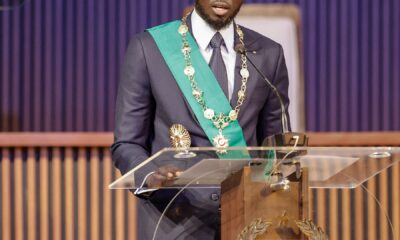
 News5 days ago
News5 days agoSenegal Moves to Raise Jail Term for Same-Sex Relations to 10 Years






